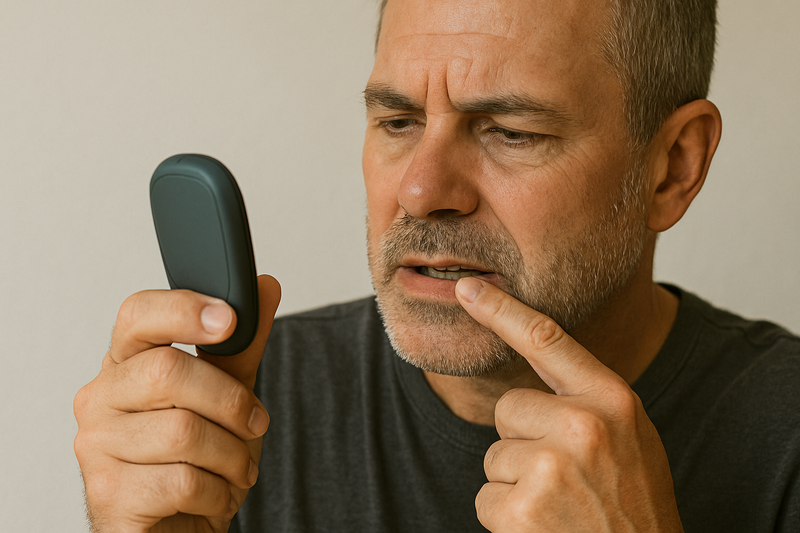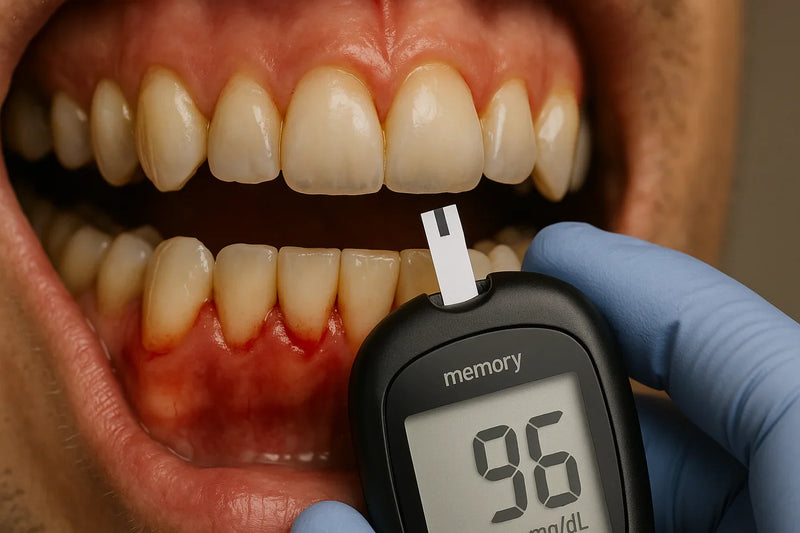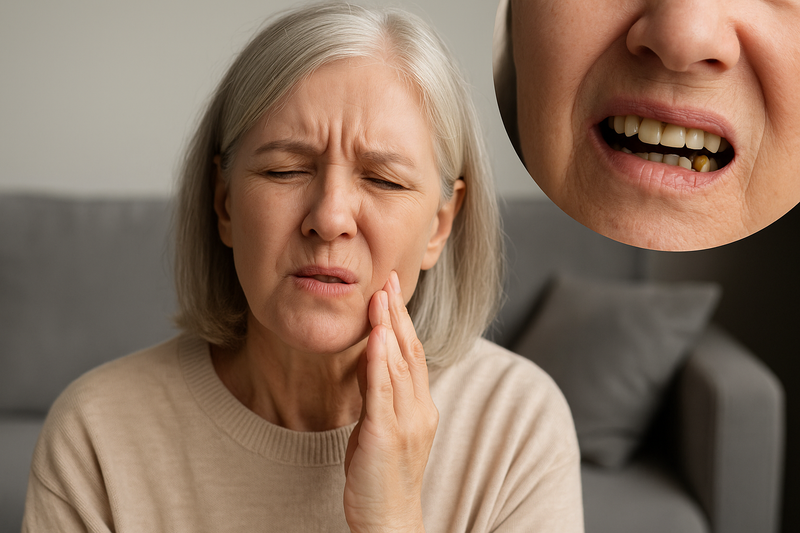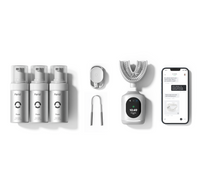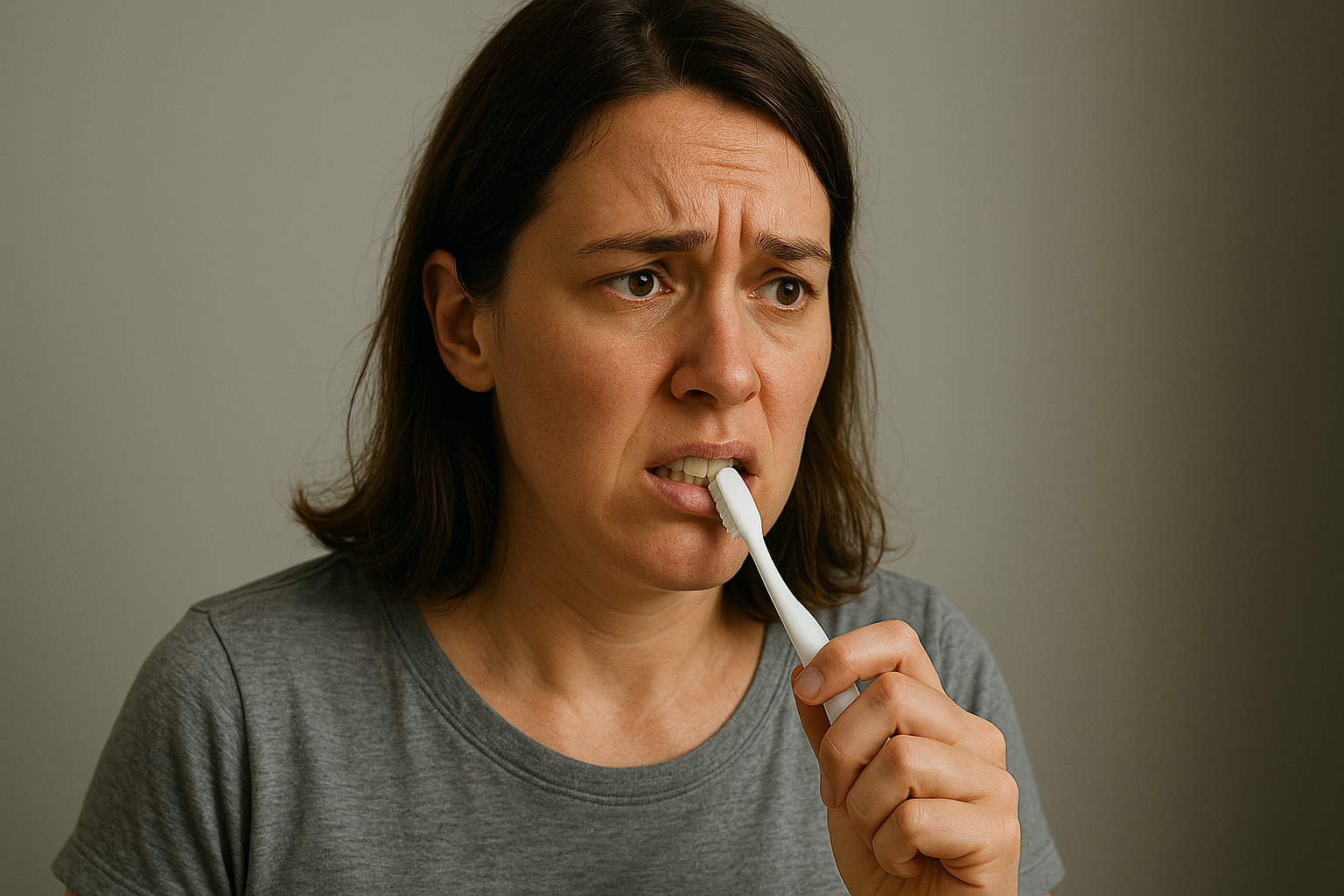
Managing Oral Health with a Weakened Gag Reflex
Essential Takeaways
- Stroke survivors with weakened gag reflex need enhanced oral care due to increased dysphagia risk. Proper hygiene, adaptive tools, and professional guidance maintain effective oral health.
The gag reflex serves as one of the body's protective mechanisms, helping prevent choking and signaling when food remains in the throat. However, research shows that the presence or absence of a gag reflex alone is not a reliable predictor for aspiration or swallowing problems after stroke. Other neurological assessments and reflexes often provide more significant clinical information.
(Dysphagia, 2005)
For stroke survivors, a weakened gag reflex frequently occurs alongside other swallowing difficulties, creating a more complex picture that requires comprehensive care.
Why Enhanced Oral Care Matters for Stroke Survivors
Research demonstrates that stroke survivors with weakened or absent gag reflex often develop impaired swallowing (dysphagia) and face a greater likelihood of requiring non-oral feeding methods. This combination increases the risk of oral bacteria entering the airway if proper oral hygiene is neglected.
(Current Physical Medicine and Rehabilitation Reports, 2014)
Studies show that stroke patients with reduced gag reflex experience:
- Prolonged dysphagia recovery times
(Postgraduate Medical Journal, 2006) - Higher risk of oral pathogen aspiration
(StatPearls, 2024) - Greater need for specialized oral care interventions
(Rehabilitation Practice and Science, 2024)
Evidence-Based Oral Care Strategies
Daily Oral Hygiene Practices
Thorough oral cleaning after meals remains the foundation of post-stroke oral care. Research confirms that regular, comprehensive oral hygiene improves overall oral health and reduces halitosis in stroke patients, though evidence regarding pneumonia risk reduction shows mixed results.
Adaptive Tools and Equipment
Advanced Smart Toothbrush Technology: The Feno Smartbrush™ represents a breakthrough solution for stroke survivors facing oral care challenges. This AI-powered device provides a full-mouth clean in just 20 seconds, featuring 18,000 bristles that brush all teeth simultaneously. For individuals with limited dexterity or coordination issues post-stroke, the reduced brushing time and comprehensive coverage can significantly improve oral hygiene compliance. The device's built-in oral scanner also allows to monitor oral health remotely through detailed reports, making it particularly valuable for stroke survivors who may have difficulty with regular dental visits.
Professional Antimicrobial Support
While antimicrobial rinses may be incorporated into some care protocols, their specific benefits for aspiration risk reduction require further research. Always consult with healthcare professionals before adding antimicrobial products to your oral care routine.
Speech Therapy Integration
Working with a speech-language pathologist represents a well-supported, core component of post-stroke rehabilitation. These specialists provide essential guidance on:
- Safe swallowing techniques
- Oral positioning strategies
- Customized feeding approaches
- Coordinated care with dental professionals
Creating Your Oral Care Plan
Developing an effective oral care routine after stroke requires:
- Professional assessment of swallowing function and aspiration risk
- Customized hygiene protocols based on individual capabilities
- Technology-enhanced solutions like the Feno Smartbrush™ for comprehensive cleaning in reduced time
- Regular monitoring with healthcare team members
- Adaptive equipment selection based on specific needs
- Family caregiver training when assistance is required
Working with Your Healthcare Team
Post-stroke oral care works best as a collaborative effort involving:
- Speech-language pathologists for swallowing assessment
- Dental professionals for oral health maintenance
- Occupational therapists for adaptive technique training
- Nursing staff for daily care coordination
Conclusion
A reduced gag reflex after stroke doesn't define your oral health future. While it may signal the need for enhanced care strategies, evidence-based approaches combined with professional guidance can maintain strong oral health. Focus on consistent daily hygiene, appropriate adaptive tools, and ongoing professional support to protect both oral health and overall well-being.
Remember that every stroke survivor's needs are unique. Work closely with your healthcare team to develop a personalized oral care plan that addresses your specific challenges and goals.
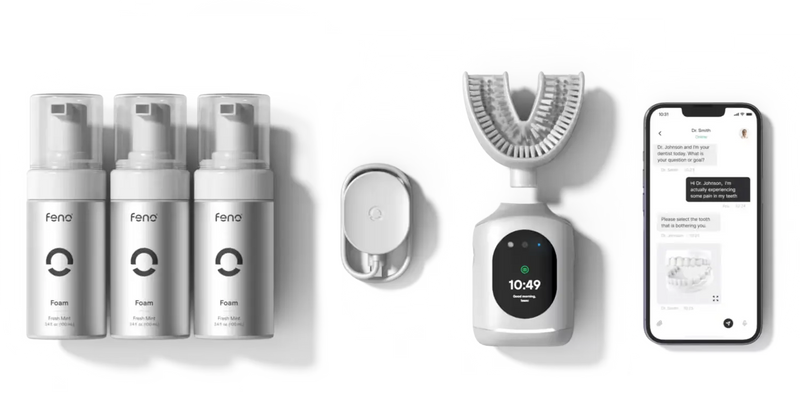
Feno Founders Edition Bundle
Advanced Oral Health in 20 Seconds with the Feno Smartbrush™
Get Yours Now!


